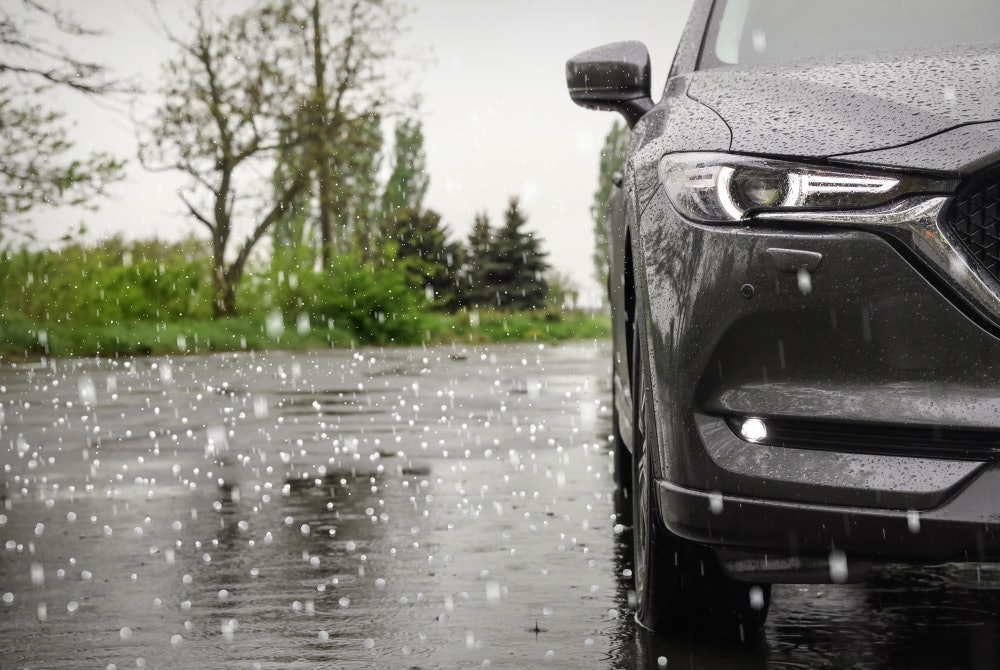- Comprehensive Coverage and Hail Damage
- Cost of Comprehensive Coverage
- How to Make a Hail Damage Claim
- Repair Costs: Recovering from Hail Damage
- Frequently Asked Questions
Only comprehensive coverage will cover hail damage. If your car insurance company also offers some other form of physical damage coverage, this may be an option too. Liability coverage will not help you pay for hail damage repairs.
When a hail storm hits, the last thing you want to think about is how much it's going to cost to repair your car—if you carry comprehensive coverage, you can rest a little easier knowing your insurance will cover some of the costs.
Comprehensive Coverage and Hail Damage
Most comprehensive insurance policies will cover hail damage; however, you should check with your insurance company to confirm this. Comprehensive coverage is not mandatory, but it is a great add-on to help you pay for damage to your car resulting from non-collision-related incidents, including hail, falling debris, and other weather-related incidents.
If a hail storm damages your car, you will generally be able to make a claim and just pay for your deductible. There are usually no limitations to the number of hail damage claims you can make a year.
If you live in the following states, comprehensive coverage might be a good idea since hail is relatively common:
- Texas
- Illinois
- Minnesota
- Missouri
- Colorado
Hail Damage is a No-Fault Claim
If you're worried about your insurance premiums going up after making a hail damage claim, don't be. While at-fault insurance claims will cause your premiums to increase, hail damage claims won't. These are considered no-fault claims and won't affect your monthly auto insurance rates.
Cost of Comprehensive Coverage
The cost of comprehensive coverage will vary depending on various factors, including your age, car type, driving habits, and driving history. According to Car and Driver, comprehensive coverage costs an average of $160 for an entire year (in 2017), which isn't that much in the grand scheme of things. Full-coverage car insurance costs on average $1,771/year.
The cost of your comprehensive insurance will be higher the lower your deductible is. So, if you want to pay a lower monthly car insurance premium, choose a higher deductible, and vice versa.
What is a Deductible?
Your insurance deductible is the amount you need to pay out of pocket before your insurance kicks in and pays for the repairs. Most insurance companies will allow you to adjust your deductible based on your needs.
How to Make a Hail Damage Claim
If your car has suffered hail damage and you need to make a claim, the first thing you should do is take photos of all of the damage. You should then call your insurance company. They will send someone to assess the damage and provide you with an estimate of the repair costs.
However, before the insurance adjuster arrives, you should try to get quotes from a few different autobody shops.
When the insurance appraiser or adjuster arrives to look at the damage, they will provide an estimate of the cost of the repairs to send to the insurance company to get your car insurance claim in progress.
Note that your insurance company will only reimburse you for the cost of repairs that the appraiser has reported back to them.
Repair Costs: Recovering from Hail Damage
The cost of repairing your car hail damaged car will depend on how much damage was caused to the vehicle. Most commonly, hail causes numerous dents to your car's body. It can even cause damage to your windows.
The total cost of repairing hail damage on your vehicle will differ depending on things like:
- The type of car you have
- Where the damage is
- How severe the damage is
Your car insurance claim will pay for the costs after you've met your deductible if you have comprehensive car insurance coverage.
Dent Repairs
According to Bodyguard Paintless Dent Repair, traditional dent repair costs around $125-$325 per dent. If you think about how many dents a hail storm could put in your car, that's quite a lot of money!
Paintless dent repair will set you back less than that, however, around $50-$150 per dent on average.
Panel Replacement
If your car has so many dents on the individual panels, it may be cheaper to replace the entire panel rather than get each dent fixed. Depending on the panel and the car you have, replacing panels will cost anywhere from a few hundred dollars to over $1,000.
Windshield Repairs
Whether you just got a chip or two from the hail or your windshield is completely smashed, it's essential to take care of it sooner rather than later. A small crack can result in a larger crack if you don't get it fixed.
Fixing a small chip in your windshield will usually cost less than $100, with some companies offering discounts when you have multiple chips to repair.
Replacing an entire windshield may cost you a few hundred dollars, so this may be the better option if you have multiple chips from the hail storm.
Your Insurance Company May Waive Your Deductible
Some car insurance companies may waive your deductible if you get your windshield repaired rather than replaced.


Comments